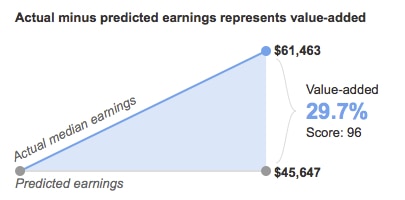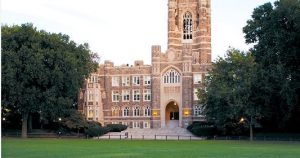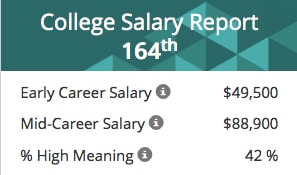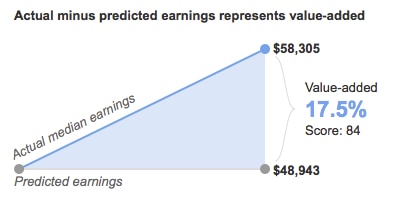
I’ll be launching my latest online course – The College Cost Lab – in June. If you’d like to be among the first to know when I have more details, just email me at Lynn@TheCollegeSolution.com. Lynn O’Shaughnessy
In my last post, I wrote about smart teenagers who worked hard to get into elite schools only to have their dream schools reject them. If you missed it, here is the link:
Stunned at College Rejections
This time I’m focusing on the predicament that parents face whose children have gotten into their No. 1 colleges, but they can’t afford them.
What Families Do When the Price Is Too High
With little or no financial assistance, I often see parents contemplating one of these four options for institutions perceived as trophy schools:
- They decide to borrow a tremendous amount of money to underwrite a bachelor’s degree at the prestige school.
- They decide to plunder their savings to cover the costs while jeopardizing their own financial security.
- They ponder whether their child should attend a lower-ranked school that has offered a better financial aid or merit aid package, but worry it will stunt their career prospects.
- They tell their teenagers that they can’t go to their top school.
Fordham versus Binghamton
Yesterday I heard from a dad who was agonizing over whether his son should attend an expensive school (Fordham University) or an inexpensive New York state school (Binghamton University) for a business degree.
After aid is deducted, the family would pay nearly $50,000 a year for Fordham. In contrast, the student got a great deal from Binghamton University in New York (one of the state’s public SUNY schools). The family would only have to pay for Binghamton’s room and board, which is $13,200.
The Allure of Destructive College Rankings
To me, it’s a no brainer what this young man should do. He should attend Binghamton, which would save him and his parents more than $147,000!
While the answer is obvious to me, it unfortunately isn’t to many parents and teenagers who believe that a school with a brand name and a higher U.S. News & World Report college ranking must be a superior institution that will ultimately lead to better paying jobs.
What parents and teenagers need to know is that the college rankings system is nothing more than a dubious beauty contest. I explain why here:
How U.S. News’ College Rankings Hurts Families
When I looked at U.S. News & World’s Reports rankings in the national university category (The latest I could find in my office was the 2014 edition), Fordham was ranked 59th, just under Tulane, George Washington U., U. of Washington, Ohio State and U. of Texas which were all tied. Binghamton was ranked 97th and was tied with my alma mater, the University of Missouri.
Parents assume that if schools are higher ranked, their children will get better jobs. The schools that enjoy better rankings definitely want you to think that they are worth the extra expense and will price themselves accordingly.
Just because a school costs more and the name is more recognizable doesn’t mean it’s a better school or produces grads who will earn more.
I am using resources from Payscale.com and the Brookings Institution to illustrate this.
Figures from Payscale.com
If you look at Payscale.com’s annual salary data below for Fordham versus Binghamton, the grads of the SUNY school end up making slightly more money than grads at Fordham in their early careers and a bit more after at least 10 years in the job market.
Out of 1,062 colleges and universities in Payscale’s database, Binghamton is tied with the University of Wisconsin as the institution with the 157th best median salaries.
Binghamton University Payscale Salary Report
Fordham University Payscale Salary Report
If you are interested in how grads at other schools fare, here is the Payscale.com college salary list.
Figures from the Brookings Institution
When you look at the college value-added college tool that the Brookings Institution created using federal data, Binghamton also wins out by having a greater impact on its graduates’ future earnings.
Use this link to get an explanation of this tool and to look for schools that interest you.
Fordham University
Binghamton University
 Here is a post that I wrote about the Brookings Institution’s tool:
Here is a post that I wrote about the Brookings Institution’s tool:
Some Surprising College Super Stars
Don’t Just Look at Salaries
By the way, I don’t think that just looking at salaries of grads is a good way to pick schools!! Relying on other factors besides a school’s name recognition and U.S. News’ ranking, however, will inject some sanity into the discussion.
If you believe that spending big bucks at higher ranked private or state schools is wise, please read the following two posts about a teenager who wanted to go to Northwestern University and instead ended up at the University of Pittsburgh after the parents decided it was nuts to spend so much money on the elite private university in suburban Chicago.
Having Second Thoughts About the University of Pittsburgh
Should this Teenager Attend the University of Pittsburgh? Part II
One more thing…
While graduates of elite schools do make higher salaries on average, research suggests (and I strongly agree) that it’s not the schools that are doing anything special, it’s the socio-economic level of the students that plays a huge influence on whether these individuals will earn a higher wage in their careers.
College students whose parents are affluent are likely to be affluent in their own lives.
Graduates from middle-class and disadvantaged backgrounds are going to have a much harder scaling the income ladder. It’s not fair, but it’s a reality.
Learn More!
The No. 1 way to cut the cost of college is to become an educated consumer. You can learn how by attending my popular online course, The College Cost Lab. I’ll be relaunching the course in June and if you’d like to be notified when I have more details, please click here.







What is one is getting a FULL scholarship to Fordham?
Does that change the comparison at all?
With Governor Cuomo’s new free college law, we fall into that category.
My son was accepted to both Binghamton School of Management, Fordham Gabelli School of Management as well as Baruch Dean’s Scholars program.
So basically ALL are FREE.
Which is best in our case?
I don’t see anything about Northwestern when I follow these links, as is stated in the paragraph directly above them. It’s all about Boston Univ.
“If you believe that spending big bucks at higher ranked private or state schools is wise, please read the following two posts about a teenager who wanted to go to Northwestern University and instead ended up at the University of Pittsburgh after the parents decided it was nuts to spend so much money on the elite private university in suburban Chicago.”
“Having Second Thoughts About the University of Pittsburgh”
“Should this Teenager Attend the University of Pittsburgh? Part II”
Mary, you make a good point. Colgate University is on the lists of schools where graduates fare well. Yet 60% of the student body does not even apply for financial aid. And only 34% of freshman receive any aid. These students would probably do well wherever they went.
Although the Brookings value-added approach is a more thoughtful and meaningful way to look at colleges in comparison to one another than the likes of US News, it is still faulty to a degree. For example, in Virginia, it doesn’t take into account the fact that Washington and Lee University has a student body made up largely of extremely privileged, well-connected families. While it is a wonderful college, this well heeled student body demographic accounts more than anything else for why its graduates fare so well in terms of earnings outcomes. Their families have valuable connections that help them get internships while still in school and high quality jobs when out of school. Additionally, they have less need to take out loans than students at schools that attract a less privileged clientele. In general, the schools that fare the best on value added rankings do so either because their students come in with many advantages already, or they are STEM focused schools, where most of the majors have a STEM component. Colleges that traditionally turn out lots of education majors may not have graduates with the highest incomes, but they are still getting jobs in a field that satisfies them and is important to society — yet their value added score is almost always lower. Middle class families may be most interested in finding a college that does a good job of taking the average student, educating him/her well, and having a strong internship and job placement office that doesn’t just rely on parent connections for its students to get internships. A better question to ask oneself is whether or not students from less well connected families are also getting the benefits that the statistics supposedly illustrate as being characteristic of a given college. Will my normal, middle class kid whose parents have few connections (so s/he must hit the pavement to find a job) have a shot at being well prepared by this college to land a job upon graduation and thrive in it? Does that college’s career office really work to connect students with internship opportunities and interviews, or do they rely on the connections of the students’ families? Does the connections factor rub off on the few students without connections? That is another nuance that is more difficult to grasp from this or any other ranking methodology. A relative lack of professional connections is one of those things that makes it difficult for lower and middle class kids to break into the higher economic strata and why upward mobility is becoming increasingly difficult in our current economic reality. I see the most valuable colleges, whether or not it can be represented through statistics, as being those who can bridge this gap for large numbers (not just a tiny percentage of token needy admits) of students from lower and middle classes, through a combination of quality education and strong career placement services.